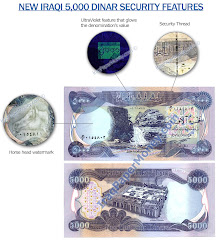Cheney: Iraq to be self-governing by 2009
By: Mike Allen and Jim VandeHei and John F. Harris Dec 5, 2007 03:54 PM EST
Vice President Cheney today predicted Iraq will be a self-governing democracy by the time he leaves office, calling the current U.S. surge strategy “a remarkable success story” that will be studied for years to come.
In an interview with Politico, Cheney offered a remarkably upbeat view of Iraq, despite continued violence and political paralysis in the war-torn nation.
Cheney, who has been widely criticized for overly optimistic — and sometime flat wrong — projections in the past, sounded as confident as ever that the Bush administration will achieve its objectives in Iraq.
“I am fairly confident we’ll have [Iraq] in a good place, where we’ll be able to look back on it and say, 'That was the right decision. It was a sound decision going into Iraq,'” Cheney told us in a 40-minute White House interview.
Sounding a note of caution, the vice president said: "We've got a lot of work to do। We're sort of halfway through the surge, in a sense. We'll be going back to pre-surge levels over the course of the next year."
But Cheney said that by the middle of January 2009, it will be clear that “we have in fact achieved our objective in terms of having a self-governing Iraq that’s capable for the most part of defending themselves, a democracy in the heart of the Middle East, a nation that will be a positive force in influencing the world around it in the future.”
All of that by 2009? “Yes, sir,” he replied.
It was a remarkable prediction by any measure, and one that is certain to infuriate congressional Democrats.
Nearly as surprising, Cheney said he has no reason to question the intelligence released this week showing that Iran is not an imminent nuclear threat, putting him at odds with conservatives such as presidential candidate Fred Thompson of Tennessee and others who have raised doubts or disputed the findings.
“I don’t have any reason to question what the [intelligence] community has produced,” he said। “Now, there are things they don’t know. There’s always the possibility that circumstances will change. But I think they’ve done the best job they can with the intelligence that’s available.”
However, the vice president said the administration is "still concerned" about Iran's enrichment activities
"We still think there's need to continue the course we've been on to persuade the Iranians not to enrich uranium," he said. "The long pole in the tent in terms of developing nuclear weapons, traditionally, historically, has been developing fissile material, either highly-enriched uranium or plutonium. In this case, they're embarked upon the program to develop uranium, obviously."
Asked how badly the NIE would complicate the administration's strategic objectives, the vice president replied: "We don't get to say we only pursue those policies if they're easy. It's very important, I think, and the President clearly does, that we proceed down the road of trying to persuade Iran diplomatically to give up their efforts to enrich uranium. That has not changed. There's nothing in the NIE that said we should be -- not be concerned about their enrichment activities."
Cheney said the assessment was released because “there was a general belief that we all shared that it was important to put it out — that it was not likely to stay classified for long, anyway,” he said.
Cheney said that “especially in light of what happened with respect to Iraq and the NIE on weapons of destruction,” officials wanted to be “upfront with what we knew.” He said he agreed that was “the right call.”
So you though it might leak? “Everything leaks,” he said with a chuckle.
Suggesting the intelligence has been over-interpreted in some quarters, Cheney said he thinks it’s “important to be precise in terms of what it means.”
For instance, he pointed out that the NIE “doesn’t deal with” the effort to persuade Iran to give up efforts to enrich uranium। He pointed to a footnote in the NIE that reads: “For the purposes of this Estimate, by ‘nuclear weapons program’ we mean Iran’s nuclear weapon design and weaponization work and covert uranium conversion-related and uranium enrichment-related work; we do not mean Iran’s declared civil work related to uranium conversion and enrichment.”
Cheney, in a seemingly relaxed and unhurried mood, chatted in his shirtsleeves, not wearing glasses, with his big chair swiveled to the side to meet his visitors.
His private office was dominated by a Christmas tree decorated with berries, pinecones and birds.
He talked at length about Congress for a story to be posted tomorrow morning and that will appear on the front page of Politico for Thursday’s edition.
By contrast to President Bush’s paper-free Oval Office desk, Cheney’s is a working desk, stacked with reference and reading material, including a pictorial directory for Congress and the latest issue of Politico.
On the lighter side, Cheney said he is reading “The Coldest Winter: America and the Korean War,” the recently released final work of the late David Halberstam.
sumber dari : http://www.politico.com/news/stories/1207/7227.html
Langganan:
Posting Komentar (Atom)
dinar pecahan 25000

security money IRD 25000
dinar pecahan 10000

security money IRD 10000
dinar pecahan 5000

security money IRD 5000



Tidak ada komentar:
Posting Komentar